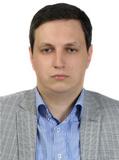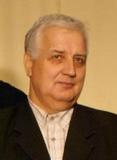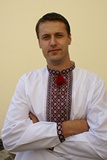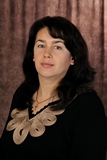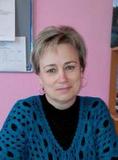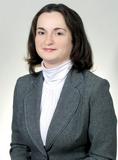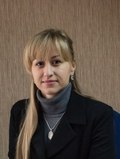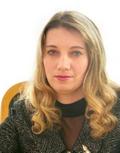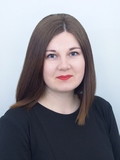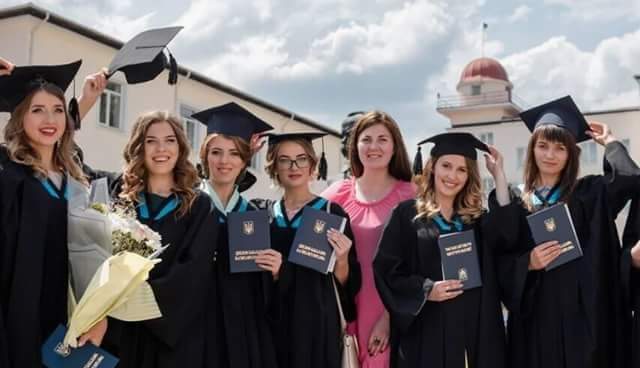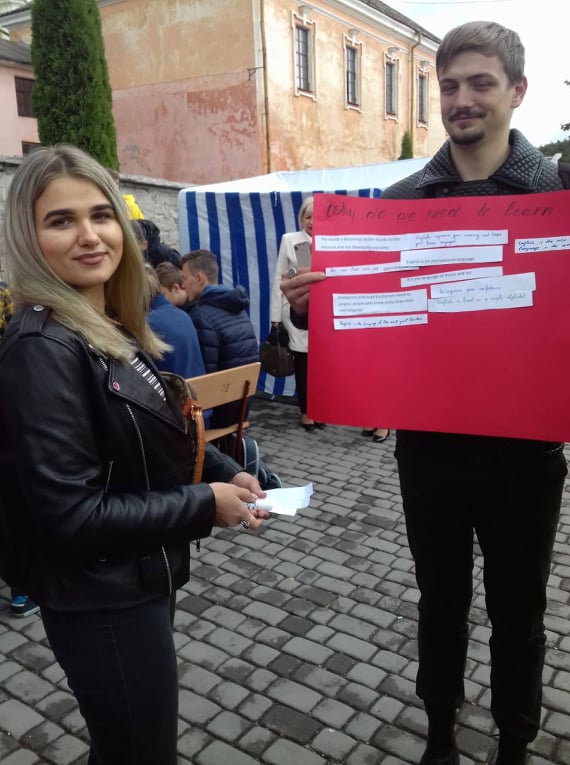E-mail of department: This email address is being protected from spambots. You need JavaScript enabled to view it.
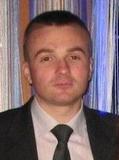 |
Kucher Vasily Vasilyovich head of the department Associate Professor, Candidate of Philological Sciences |
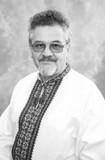 |
Glotov Oleksandr Leonidovych professor Doctor of Philology sciences |
|
Chyk Denys Chabovych Professor, Doctor of Philology |
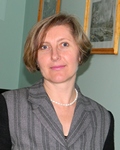 |
Marunko Orysia Adamivna associate professor, Candidate of Philological sciences |
|
|
Yankov Anatoliy Viktorovych associate professor candidate of Philological Sciences |
|
Syrotyuk Mykola Associate Professor, Candidate of Pedagogical Sciences |
|
Yatsenyuk Nadiia Ivanivna associate professor Candidate of Pedagogical sciences |
|
|
Klak Inna Yevheniivna associate professor, Candidate of Pedagogical Sciences |
|
Semehyn Tetiana Stanislavivna associate professor, Candidate of of Philological Sciences |
|
Dyrybalo Oksana Ivanivna Candidate of Philological Sciences, senior lecturer
|
|
|
Dolga Tetiana Oleksandrivna Senior Lecturer, Candidate of Psychological Sciences |
|
Yanus Natalia Volodimirivna candidate of Philological Sciences, associate professor
|
|
Danik Nadiia Andriivna assistant |
Associate professors:
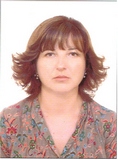 |
Lomakovych Valentyna Yaroslavivna associate professor Candidate of of philological sciences |
|
Maternity leave:
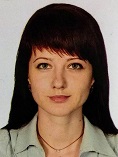 |
Khomiak Olha Vasylivna Candidate of Philological Sciences, senior lecturer |
|
The Department provides training of teachers of English, German at the higher education degrees "Bachelor" and "Master" and teachers of Polish at the higher education degree "Bachelor". The educational process at the department is provided by 16 scientific and pedagogical staff, including: 2 Doctors of Sciences, 13 Candidates of Sciences, 11 of them are Associate Professors.
The department provides teaching of the following educational components:
First (bachelor's) level of higher education:
Practice of oral and written speech, practical grammar of English, practical phonetics of English, introduction to the specialty (with elements of propaedeutic practice), introduction to linguistics, history of English, stylistics and linguistic-stylistic analysis of the text, lexicology of English, methods of teaching foreign languages, theoretical grammar of English, theoretical phonetics of English, general theoretical course of English, literature of English-speaking countries, linguistic studies of English-speaking countries, various types of pedagogical
Second (Master's) level of higher education:
practical course of English/German, methods of teaching foreign languages in high school, comparative literature, industrial (pedagogical) practice, basics of English/German academic writing, business English/German communication, practical course of Polish, linguistic and cognitive text analysis (English/German), basics of cognitive linguistics, innovations in English vocabulary, linguistic and country studies of English/German speaking countries, introduction to genre studies, contrastive grammar of English and Ukrainian, Polish political and media discourse, contemporary Polish literature, contemporary Polish art, contemporary English/German literature, comparative typology of English/German and Ukrainian, contrastive stylistics of English/German and Ukrainian, communicative linguistics, comparative lexicology of English/German and Ukrainian, stylistics of English/German, general theoretical course of English/German, lexicology of English/German, history of English/German, theoretical grammar of English/German, theoretical phonetics of English/German, etc.
Specialty 014 Secondary education (Language and literature (German)):
First (bachelor's) level of higher education:
Practice of oral and written speech, practical grammar of German, practical phonetics of German, introduction to the specialty (with elements of propaedeutic practice), introduction to linguistics, history of the German language, stylistics and linguistic and stylistic analysis of the text, lexicology of the German language, methods of teaching foreign languages, theoretical grammar of German, theoretical phonetics of German, general theoretical course of German, literature of German-speaking countries, linguistic and country studies of German-speaking countries, various types of pedagogical practices (propaedeutic, educational and pedagogical (trial lessons at school), industrial (pedagogical)) and others.
The second (master's) level of higher education:
Practical course of German, practical course of English, methods of teaching foreign languages in high school, comparative literature, industrial (pedagogical) practice, basics of English/German academic writing, business English/German communication, practical course of Polish language, linguistic and cognitive text analysis (English/German), basics of cognitive linguistics, innovations in English vocabulary, linguistic and country studies of English-speaking countries, introduction to genre studies, contrastive grammar of English and Ukrainian, Polish political and media discourse, modern Polish literature, modern Polish art, modern English/German literature, comparative typology of German and Ukrainian languages, contrastive stylistics of German and Ukrainian languages, communicative linguistics, comparative lexicology of German and Ukrainian languages, stylistics of English, general theoretical course of English, lexicology of English, history of English, theoretical grammar of English, theoretical phonetics of English, etc.
Specialty 014 Secondary education (Language and literature (Polish))
First (bachelor's) level of higher education:
Modern Polish language, methods of teaching Polish language, practical phonetics of Polish language, practical grammar of Polish language, literature of Poland, history and culture of Poland, linguistic studies of Poland, general theoretical course of Polish language, conversational course of Polish language and others.
The interest in studying foreign languages at the educational institution was traced back to the Volyn gymnasium (lyceum), where the best language experts of European universities and native speakers were invited to teach. Later in Kremenets Lyceum (early twentieth century) German, French and Latin languages were studied in depth. In the early years of the institution's formation, foreign languages were taught by V. Miller, E. Tarlevska, E. Slonikevych, E. Yastrebska (German); E. Schmil (French and German), V. Hrabovska-Stolletova, V. Kolchynska, G. Lipkovska, J. Poniatowska, E. Sokolnicka, J. Vygard-Halstein, E. Franciszek (French).
The tradition of studying Romance and Germanic languages continued in Kremenets Teachers' (Pedagogical) Institute. Highly qualified specialists united around the head of the department T. Ivanova: G. Besarab - teacher of English, Z. Aleksandrova, G. Pidipryhora - teachers of German.
The staff of the Department of Foreign Languages and Methods of Their Teaching is a creative team of like-minded people who have significant scientific potential and strive for professional self-improvement. Research and teaching staff focus their activities on honing the linguistic and didactic skills of teaching foreign languages, in particular, they actively introduce methods of competence-based, communicative-oriented teaching of foreign language communication.
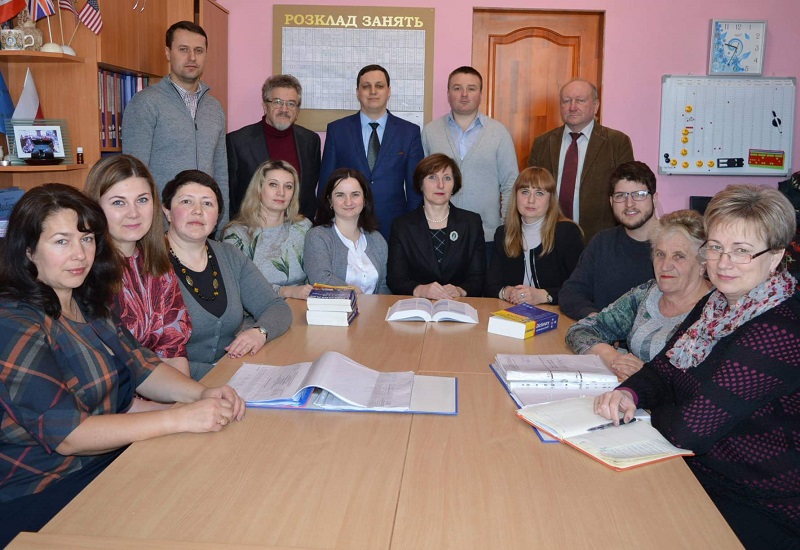 |
Teachers of the Department perform doctoral and candidate dissertations, publish monographs, teaching aids, scientific articles in professional publications of Ukraine, as well as in periodicals included in scientometric databases Scopus and Web of Science. In the sphere of scientific interests of teachers are the problems of linguodidactics, linguistic and literary studies aimed at carrying out scientific research in the field of literary comparative studies, German studies and lexicography. This is reflected in the collective theme of the department "Modern trends in the study of foreign language discourse and linguodidactics".
The leading place in the work of the Department is occupied by scientific and publishing activities. Scientific resonance gained thorough dictionaries of modern English by Associate Professor of the Department A.V. Yankov: "Innovations in the vocabulary of the English language of the early 21st century (English-Ukrainian dictionary)" (2008), "New colloquial vocabulary and phraseology (English-Ukrainian dictionary)" (2010) (co-authored). ) (co-authored), "English-Ukrainian Dictionary of New Vocabulary and Phraseology of the English Language in the Field of Medicine and Healthcare" (2013), Lexical and Phraseological Innovations of the English Language (English-Ukrainian Dictionary) (2020) (co-authored).
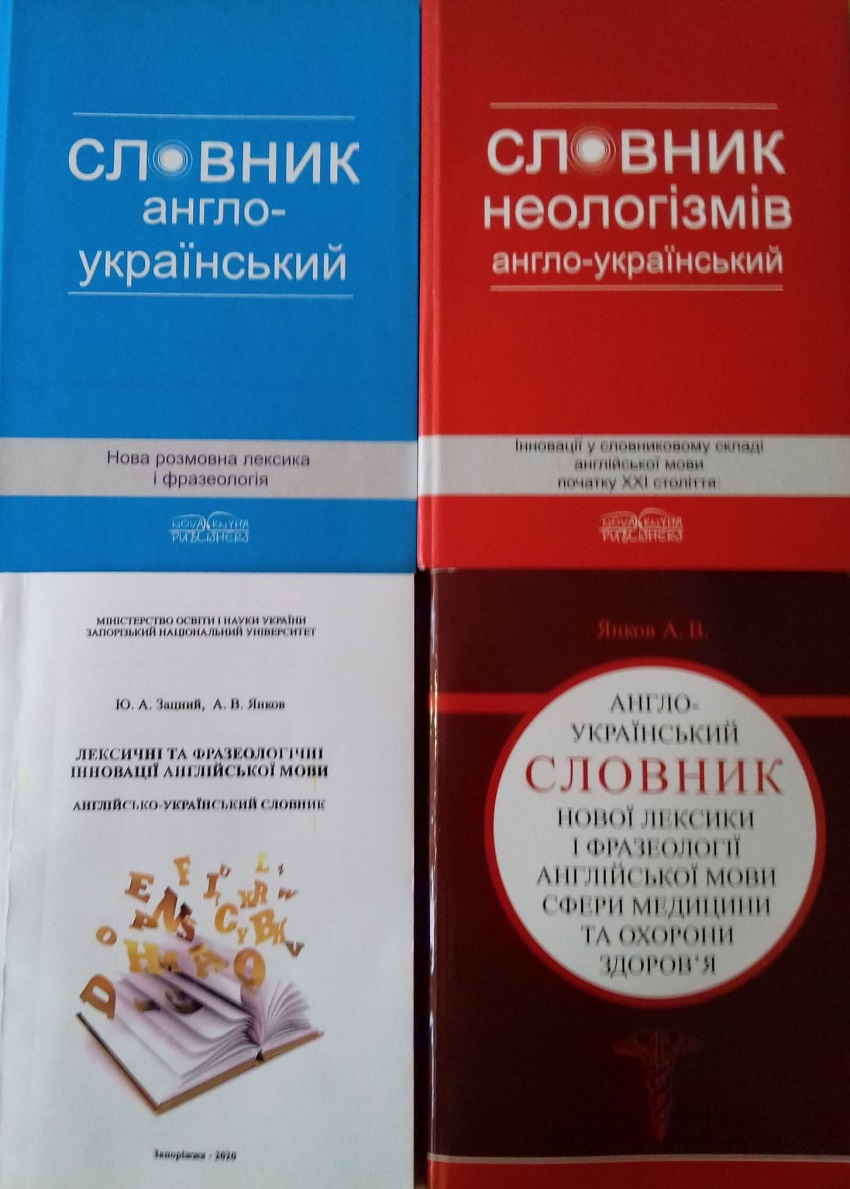 |
Since 2010, the Department has launched a periodical scientific publication "Kremenets Comparative Studies" (Editor-in-Chief - Doctor of Philology, Professor of the Department D. Chyk). Today it is an international philological journal that serves as a platform for the publication and exchange of research results of specialists in comparative literature and linguistics. The collection is indexed in the international scientometric databases "Indeh Соrеrnісus International" (Poland) in the fields of knowledge "Literary Studies" and "Linguistics", "Research Bible" (Japan), "СіteFаѕtоr" (USA), "InfoВАЅЕ INDEH" (India), registered in the International Scientific Indexing System (France) with the ISSN.
 |
 |
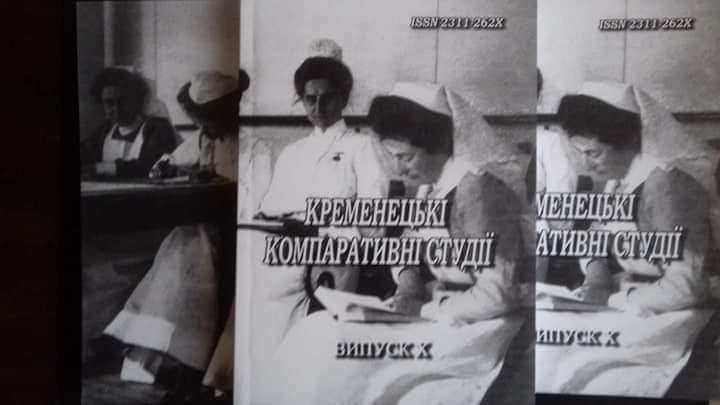 |
The Department takes an active part in international activities, maintaining close contacts with the following international organizations: Goethe Institut, German Academic Exchange Service (DAAD), Austrian Cultural Center in Lviv (OeAD). For many years, volunteers of the US Peace Corps in Ukraine have been working at the Department within the framework of the international project "Teaching English as a Foreign Language".
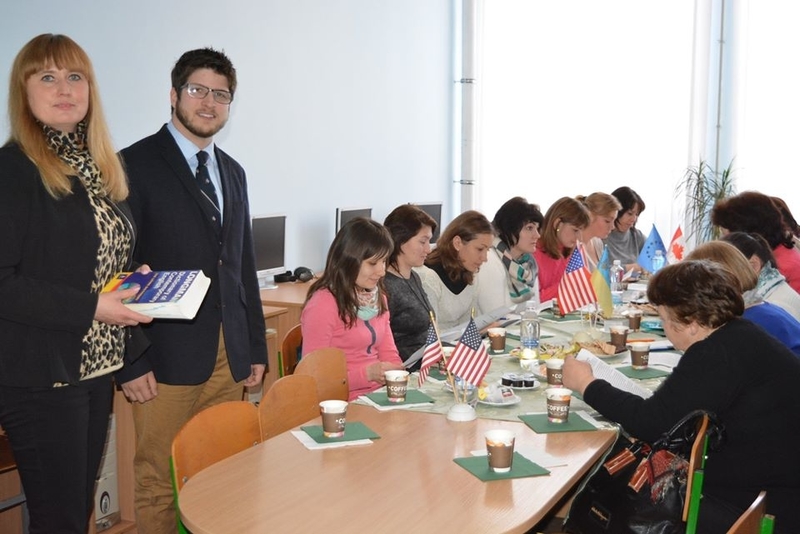 |
Vorontsova N.G. and US Peace Corps Volunteer Abram Krause conduct a training seminar for English teachers of Shumsky district
In the educational process, the multimedia resource center for learning the Polish language (opened with the assistance of the Consulate General of the Republic of Poland) is actively used, the multimedia support of which allows students to plunge into the virtual foreign language space and improve their foreign language communication skills. This educational lounge is an example of a modern educational environment that creates a positive motivational context and comfortable conditions for learning foreign languages.
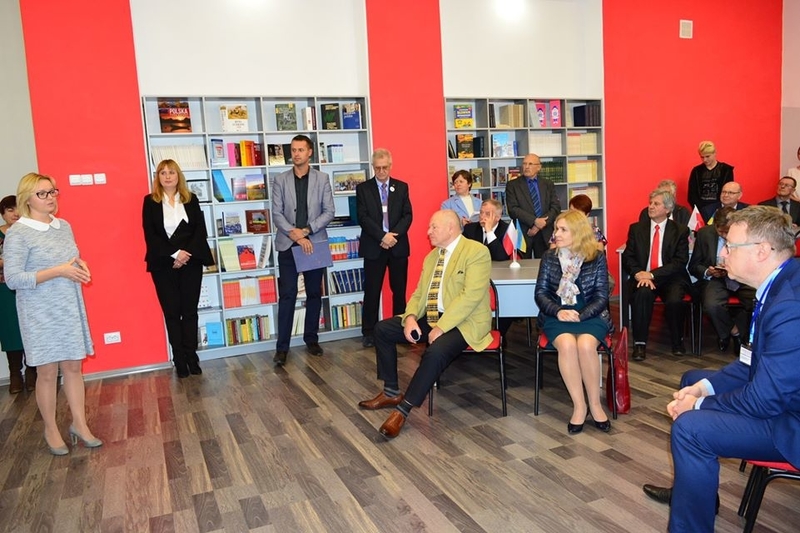 |
Opening of the multimedia resource center for learning Polish language
The formation of not only linguistic, but also socio-cultural competence of future specialists is ensured by the use of a powerful information fund of the library.
 |
 |
In 2019, the Department, as a partner of the international organization US Peace Corps in Ukraine, together with the volunteer Abram Krause (who worked at the Department of Foreign Languages and Methods of Teaching Them during 2018-2020) received a grant to implement the project "Small Projects Support Program (SPA) of the United States Agency for International Development", which was successfully implemented. Within the framework of this project, trainings of the "Club of Public Activity" were held for students of the Academy and students of 10-11 grades of the secondary school of Kremenets. Kremenets, as well as the material and technical base of the faculty was changed.
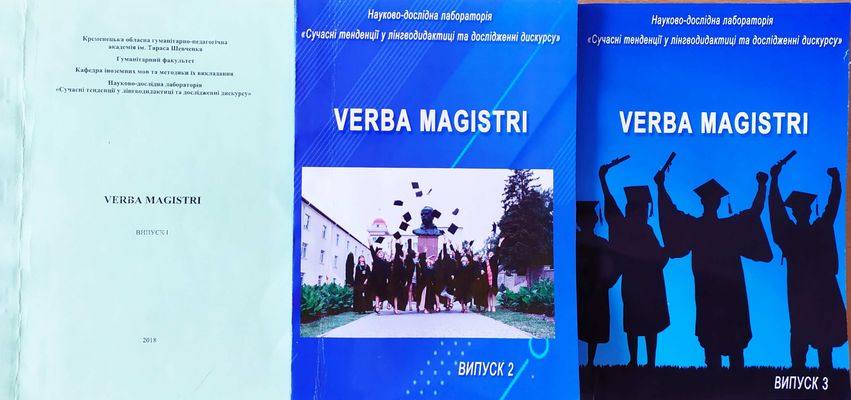 |
The work with gifted students is implemented in the research laboratory "Modern Trends in Linguodidactics and Discourse Research" (headed by Associate Professor of the Department, Candidate of Philological Sciences T.S. Semehin), the results of which are published in the collection of scientific works of young scientists, graduate students and students "Verba Magistri".
%20pislya%20zahystu%20kval%20rob%20.jpg) |
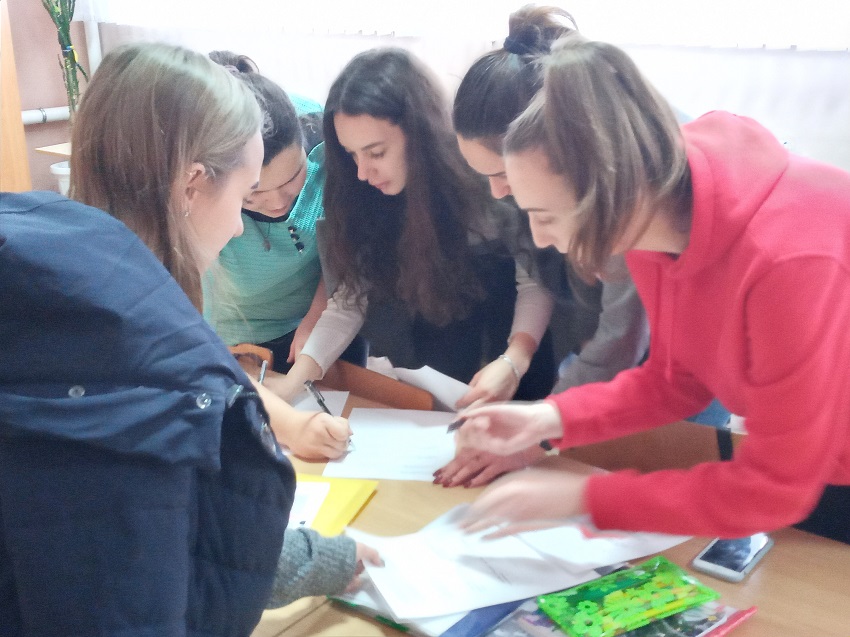 |
Teachers of the department and students are participants of the International integration project for undergraduate and graduate students "School of Open Mind" (co-organizers - universities of Ukraine and Poland).
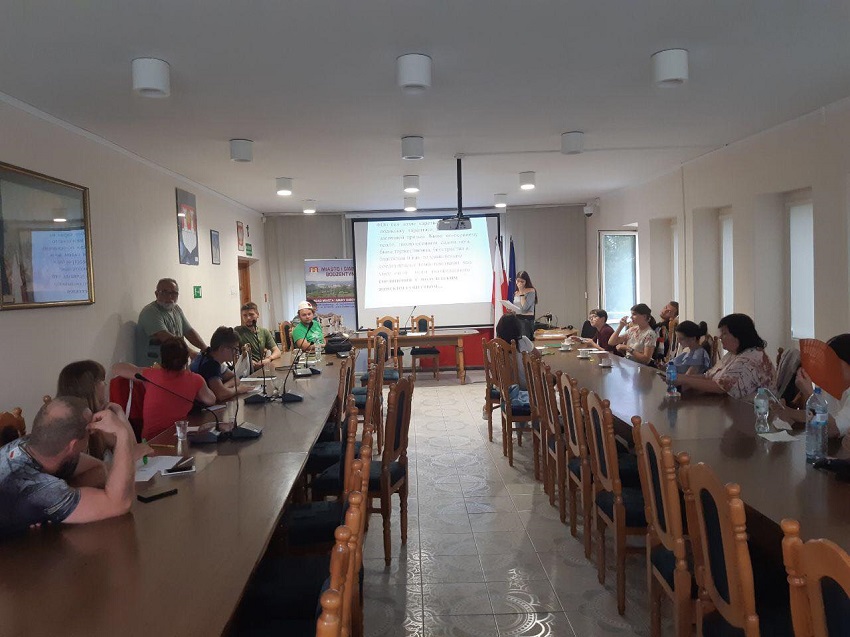 |
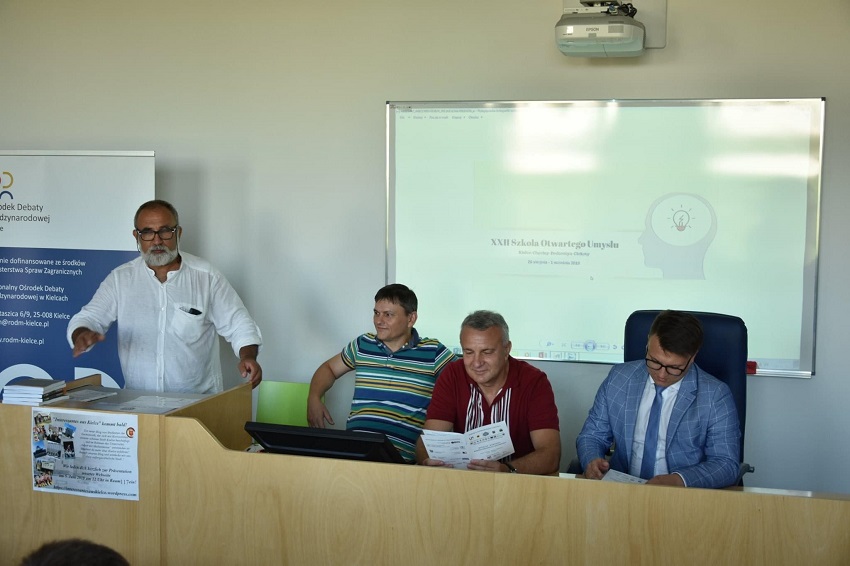 |
Scientific discussions of the School of Open Mind participants
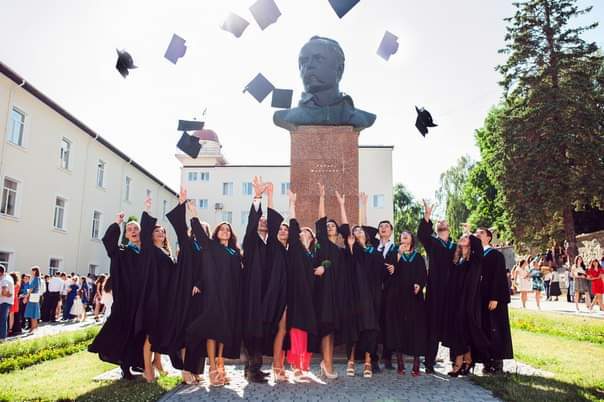 |
|
|
Graduates of the Department of Foreign Languages and Methods of their Teaching
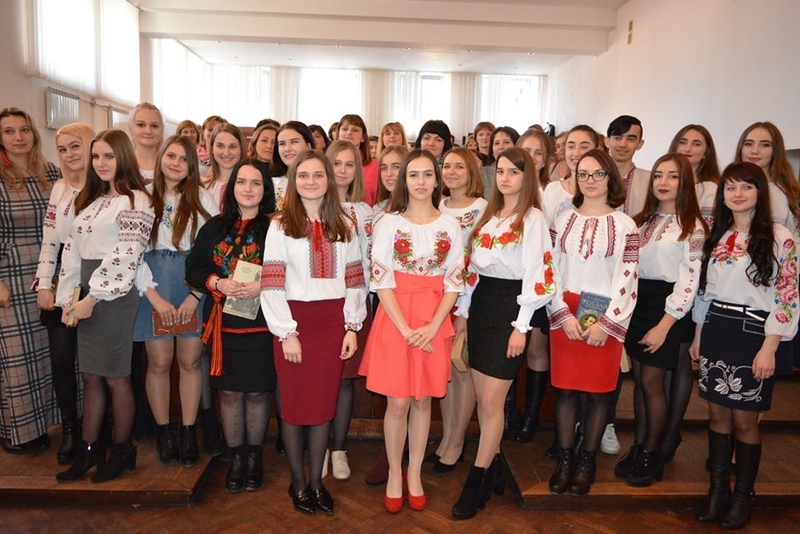 |
Students of the specialty organize and conduct various cultural events. During the Shevchenko days, literary poetry readings "Kobzar in the languages of Europe" are traditionally held
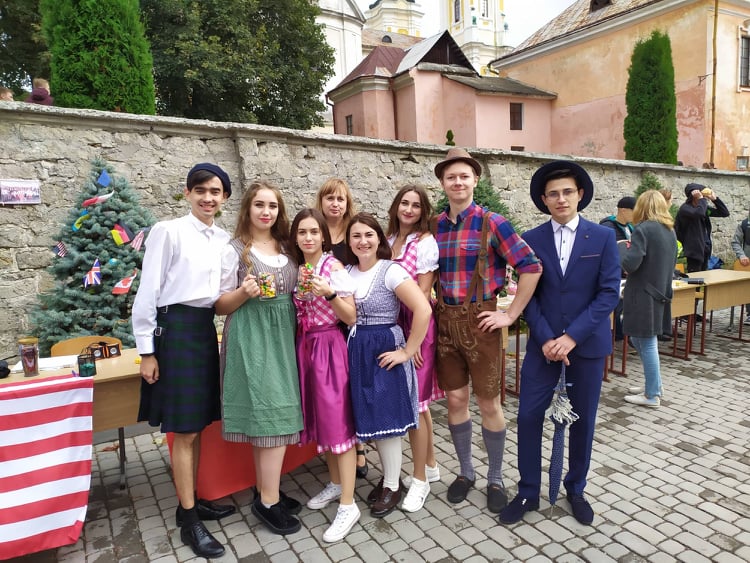 |
|
|
Applicants for higher education during the career fair
 |
It has become a good tradition to hold an evening of carols in foreign languages
Every year in December - on the Catholic holiday of St. Nicholas - students give warm impressions to the audience, and, in addition, organize a charity sale of Christmas culinary products and hot chocolate. Such events are especially relevant in the context of Ukraine's European integration aspirations.
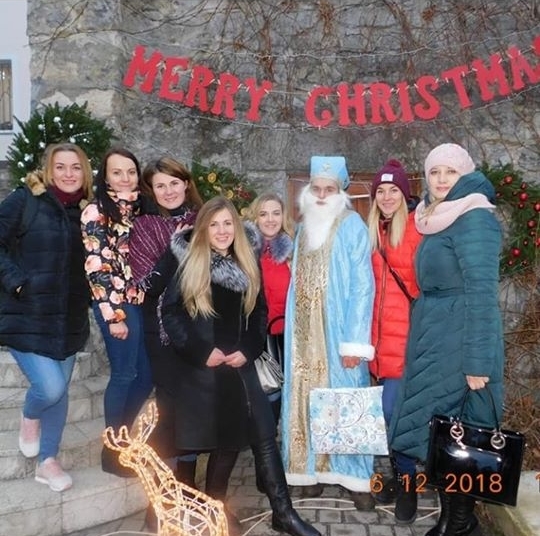 |

